Press releases
Research
We are looking for solutions to today's biggest challenges - find out more about our focus areas, infrastructure and innovations.
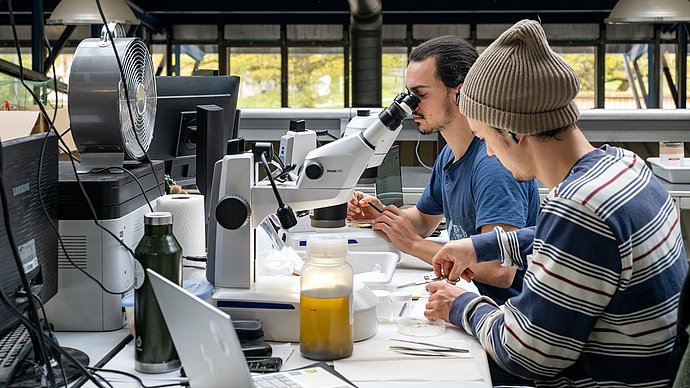
Study on Germany, Austria and Switzerland
TUM produces the most start-up founders
Where did most start-up founders study and research? A study by the Technical University of Munich (TUM), ETH Zurich and the University of Innsbruck shows a complete picture for Germany, Austria and Switzerland for the first time. In the past decade, most start-ups were founded by students, employees and alumni of TUM, ETH and the University of St. Gallen. If one looks at the number of start-ups in relation to the number of students, German private universities are the most successful. The sectors with the most start-ups are shaped by only a few universities.
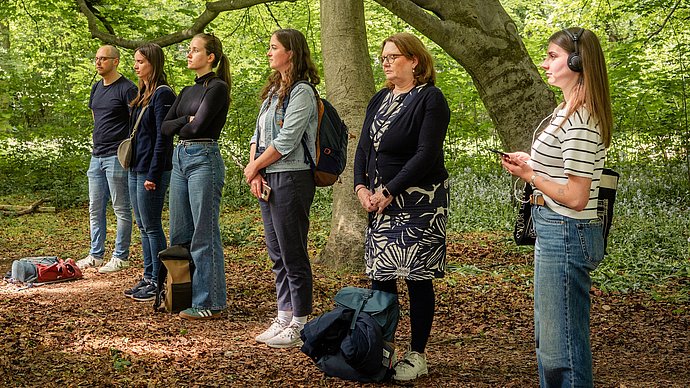
Participatory Research
Exploring the urban soundscape
Take a walk through the city and contribute to research at the same time: Residents of Munich now have the opportunity to do just that through guided soundwalks in the neighborhoods of Au, Neuperlach, and Harlaching. CitySoundscapes, a joint project by the Technical University of Munich (TUM), LMU Munich, and other partners, is looking for curious citizens willing to explore their city in a new way — and help lay the groundwork for concrete ways to improve life in the city.

QUICK³ mission to explore future secure communication technology
Quantum satellite launched into space
The QUICK³ nano satellite will test components for future quantum satellite systems. The goal is to enable rapid and secure communication using quantum technology. Developed by a research consortium led by TUM professor Tobias Vogl, the satellite was launched into orbit on Monday, June 23, with a booster rocket from Vandenberg Space Force Base in California. The mission is expected to deliver its first results by the end of the year.
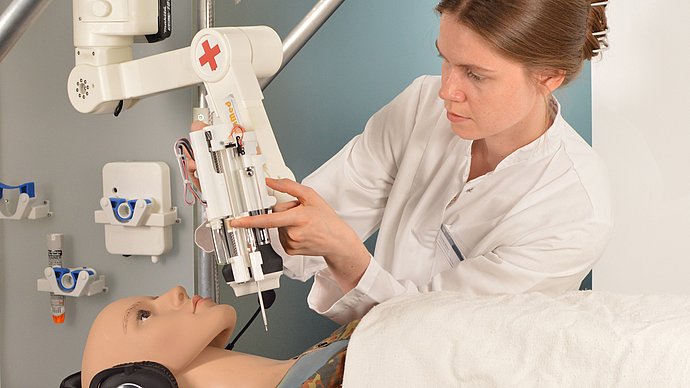
Remote relief of tension pneumothorax
Robot treats injured people in flight
Researchers at the Technical University of Munich (TUM) have developed a medical robotic system to save lives. It relieves injured people with life-threatening tension pneumothorax in the chest cavity. At the Automatica robotics trade fair, the researchers are presenting the robotic solution for the first time. In the future it will be capable of telemedical operation during evacuation flights. It was developed as part of the iMEDCAP project financed by the European Defense Fund.
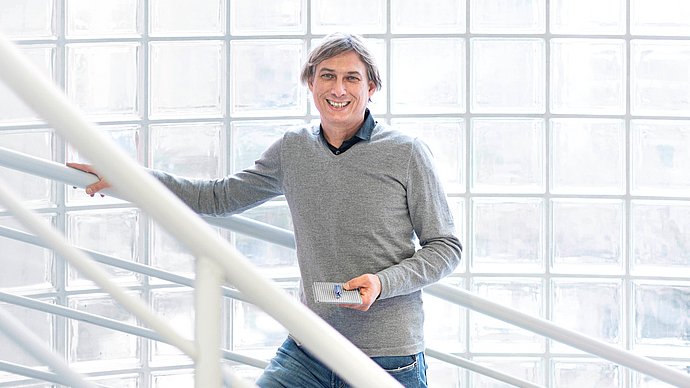
Prof. Friedrich Simmel on the new BioSysteM Cluster of Excellence
"Thinking of biology as technology"
The BioSysteM Cluster of Excellence aims to develop self-organizing molecular and cellular systems with programmable, life-like properties. The focus ranges from biomolecular machines for biosynthesis and intelligent materials to biomedical microrobots and pattern-based therapeutics to the control of cell differentiation and organ formation as the basis for a new generation of revolutionary applications in biomedicine. Spokesperson Prof. Friedrich Simmel explains in an interview why the involvement of society is crucial in this context.
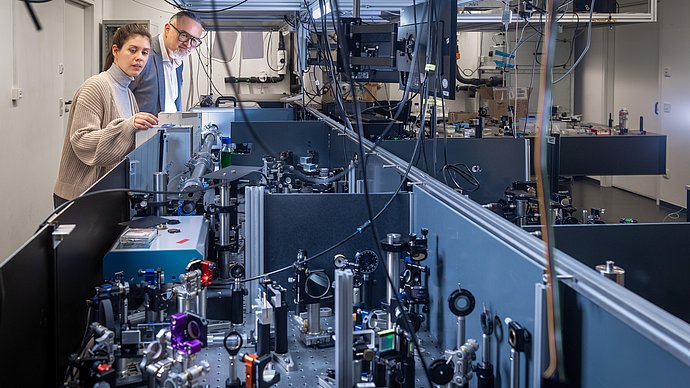
QS World University Rankings sees TUM as the best university in the EU
TUM rises to number 22 worldwide
The Technical University of Munich (TUM) has again moved up in the QS World University Rankings and now holds the 22nd position worldwide. This marks the first time TUM has reached the top 25 in one of the three most prestigious international university rankings. In addition, QS now lists TUM as the best university in the European Union.
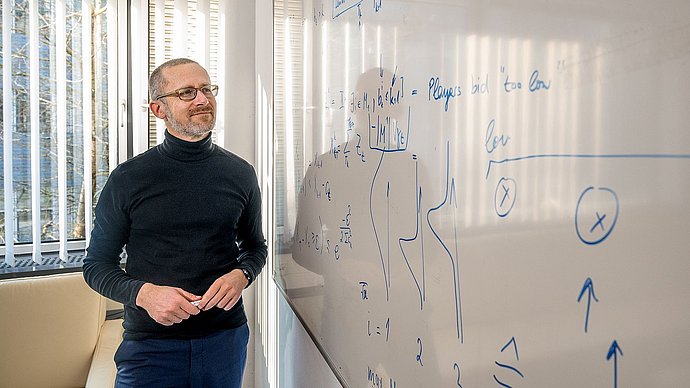
European support for outstanding research in computer science, mathematics and medicine
Three TUM researchers awarded ERC Advanced Grants
Could errors in eliminating certain immune cells lead to Alzheimer’s disease? Can new algorithms improve learning-based pricing agents – for example, in online retail? Can scientific computations be significantly optimized through novel approaches? These are the questions driving three research projects at the Technical University of Munich (TUM), each of which has received an Advanced Grant from the European Research Council (ERC).
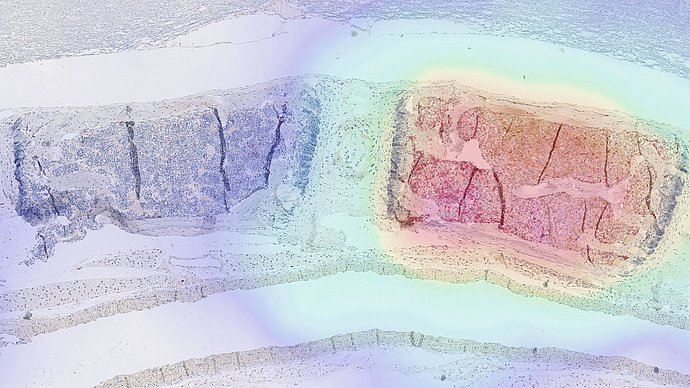
New method for labeling T cells in immunotherapy
Tracking immune cells inside the body
In modern immunotherapy, modified immune cells are introduced into the body to attack tumors and other targets. Researchers at the Technical University of Munich (TUM) have developed a method for tracking these cells in the body. This new approach could deepen our understanding of cellular therapies and help make future treatments safer.
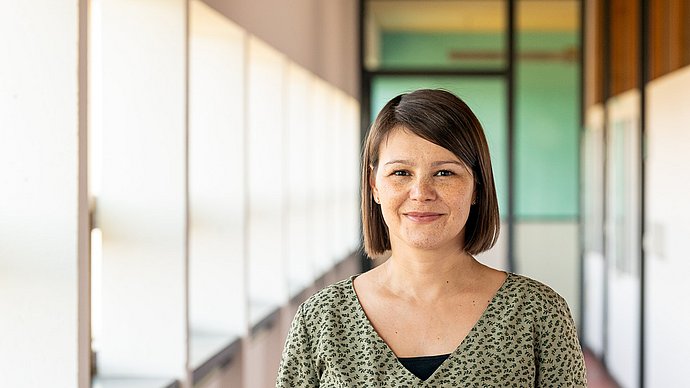
Neural Networks benefit from biological data
How artificial intelligence can learn from mice
The ability to precisely predict movements is essential not only for humans and animals, but also for many AI applications — from autonomous driving to robotics. Researchers at the Technical University of Munich (TUM) have now discovered that artificial neural networks can perform this task better when trained with biological data from early visual system development.
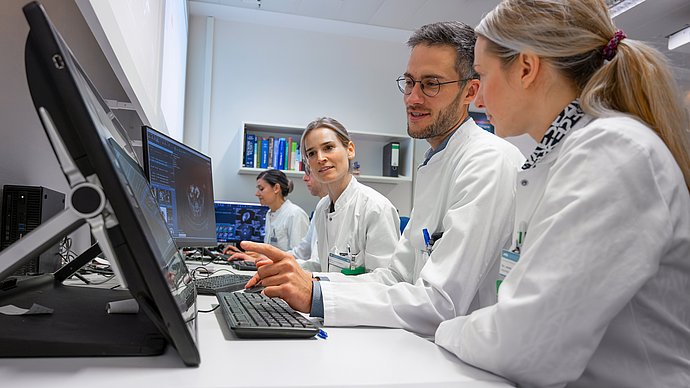
Funding for the AIdvice digital knowledge assistant
Artificial intelligence to support cancer treatment
For people with a cancer diagnosis, understandable and reliable information is crucial – but is often difficult to find. The wording of medical guidelines and advice is often too complex for many patients to understand. At the same time, they are exposed to widespread misinformation online. Researchers at the Technical University of Munich (TUM) and the TUM University Hospital have now received funding from Google.org for the AIdvice project, which aims to translate up-to-date, evidence based knowledge into answers that are understandable and adapted to individual needs.
